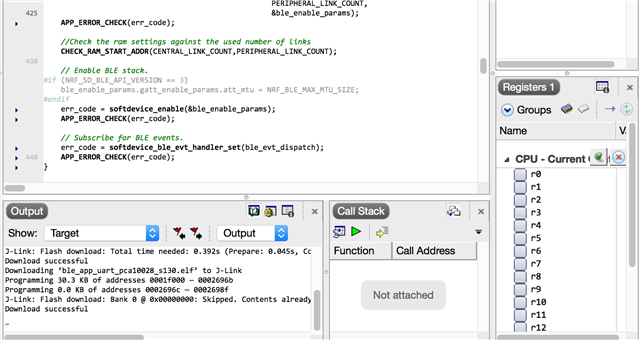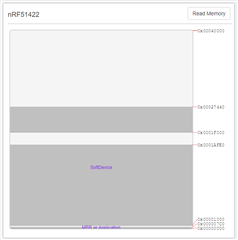Total noob here using SES on a Mac to build BLE peripheral (S110) firmware for an nRF51822-based device with SDK v15.
So far I've been able to get the generic portions of the application working. I can read button state changes. I can blink LEDs. I'm using the nRF5 DK board as my programmer. It connects to the target board using the debug out port and a "plug of nails" connector. The Segger debugger in SES is working. I can compile, flash, erase, debug, etc. all from SES.
But... My next challenge is to get the BLE peripheral functionality working. I'm a bit lost on how to tell SES to flash the S110 SoftDevice along with my code. I've found several messages that seem to indicate that the nRF51 line more-or-less stopped with SDK 12.x and that there is no native support for the 51 line in SES and / or in SDK v15.
Does anyone have a recipe, or any suggestions? Would I be better off abandoning SES and trying to set up a different tool chain or use a different IDE on this Mac?
Thanks in advance,
-S





